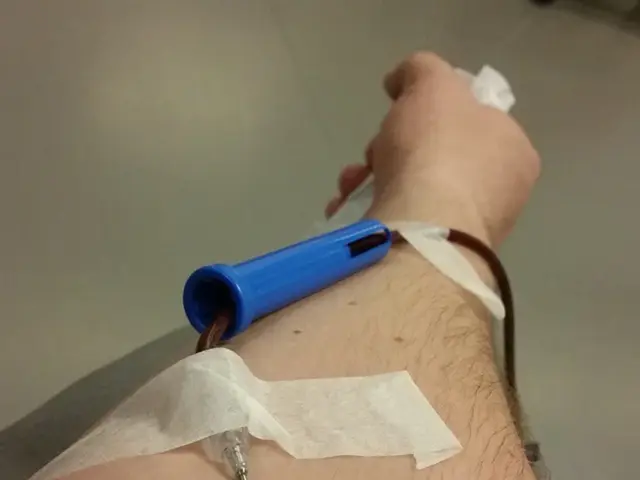Withdrawal of Chikungunya vaccinations for individuals over 65 in Reunion and Mayotte Islands
Updated Article:
Health authorities throw the brakes on senior vaccinations amidst chikungunya crisis
Health authorities in various regions have made a surprising U-turn in their vaccination strategy against chikungunya, suspending inoculations for individuals aged 65 and above following a series of concerning incidents. The decision comes after reports of three "serious undesirable events," one of which resulted in a fatality among the senior population.
In a statement released on Saturday, April 26, the Ministry of Health highlighted that this shift only impacts those with no underlying health issues, as vaccination remains open for younger adults with comorbidities. The chikungunya outbreak in La Réunion has already claimed nine lives, sparking concern and increasing pressure on the healthcare system.
Audrey Belin, a senator representing the Socialist Party, has called for a parliamentary inquiry into the vaccine's rollout for seniors, questioning the responses of the Regional Health Agency to the crisis. The General Directorate of Health has accelerated its investigation into the matter by referring it to the Higher Health Authority for review, aiming to delve deeper into the reasons behind the vaccine's apparently unfavorable outcomes among the elderly population.
The controversy surrounding the Ixchiq vaccine emerged in mid-April following the announcement of "enhanced surveillance" for potential post-vaccination side effects. Developed by Valneva, the Ixchiq vaccine is the first of its kind to receive marketing authorization in Europe, and has played a crucial role in the ongoing public health response in La Réunion.
However, recent data disputes any ties between the vaccine and the reported serious incidents. There is currently no evidence supporting a link between the Ixchiq vaccine and the adverse events that prompted the temporary halt of vaccinations for seniors. The absence of official reports of serious adverse events implies that the Ixchiq's safety profile remains consistent with clinical trial data.
Simultaneously, ongoing phase IV studies and consultations by the WHO are underway to address knowledge gaps, particularly concerning vaccine safety and effectiveness in real-world outbreak conditions. The broader public health response continues to prioritize vaccinations and mosquito control measures in the face of an escalating, comprehensive chikungunya outbreak in La Réunion.
Further Reading- Article for Subscribers | Chikungunya: The epidemic is amplifying in La Réunion and putting the health system under strain- Valneva Environnement SAS- Centre National de Chimie Therapeutique (CNCT)- WHO Chikungunya Vaccines Update
Reuse this Content
- The health authorities' decision to halt senior vaccinations amidst the chikungunya crisis raises questions about the safety of the Ixchiq vaccine, particularly for the elderly population with chronic diseases or mental health issues.
- As the chikungunya outbreak in La Réunion escalates, health authorities continue to stress the importance of vaccinations and mosquito control measures while investigations are ongoing to address safety concerns related to the Ixchiq vaccine and its effects on those with comorbidities.
- In light of these concerns, auditors might want to pay attention to how therapies and treatments, such as nutrition and CBD, could potentially impact the health-and-wellness of seniors who have received the Ixchiq vaccine or are at risk of contracting chikungunya.
- Meanwhile, ongoing studies and consultations by the WHO could provide valuable insights into the safety and effectiveness of the Ixchiq vaccine in real-world conditions, helping healthcare professionals make informed decisions about vaccinations for seniors with comorbidities when the vaccination campaign restarts.
- Amidst this crisis, it's crucial for healthcare authorities to provide transparent communication on the findings of their investigations and ensure timely disclosure of any new information that could impact vaccination policies or public health recommendations.
- On a broader scale, this situation highlights the need for ongoing research and development of vaccines to protect individuals with varying degrees of medical-conditions against emerging diseases, potentially reducing the burden on the healthcare system.
- As we wait for further developments, keeping ourselves informed about the latest research and findings on the chikungunya outbreak, its impact on public health, and the Ixchiq vaccine's efficacy is crucial for making well-informed choices regarding our health and wellness.









